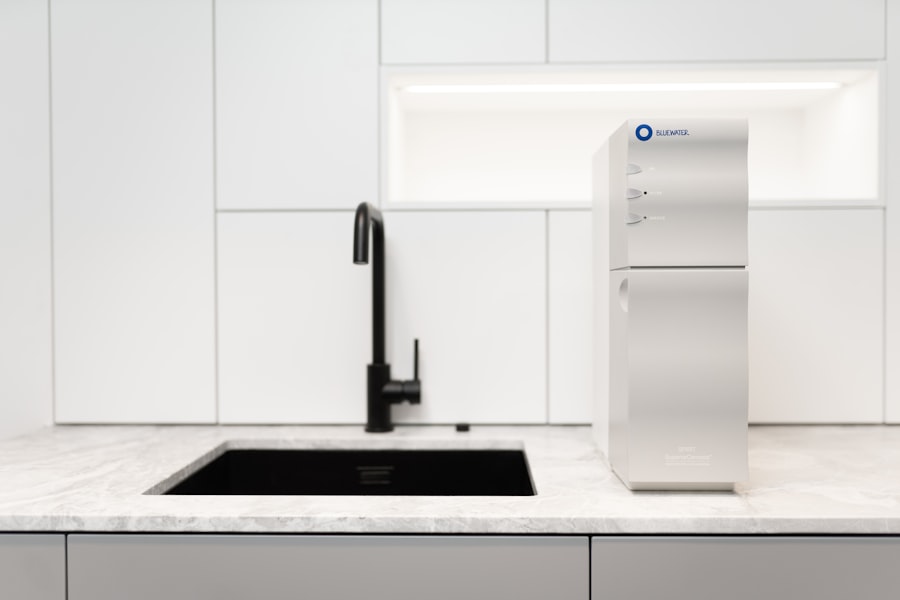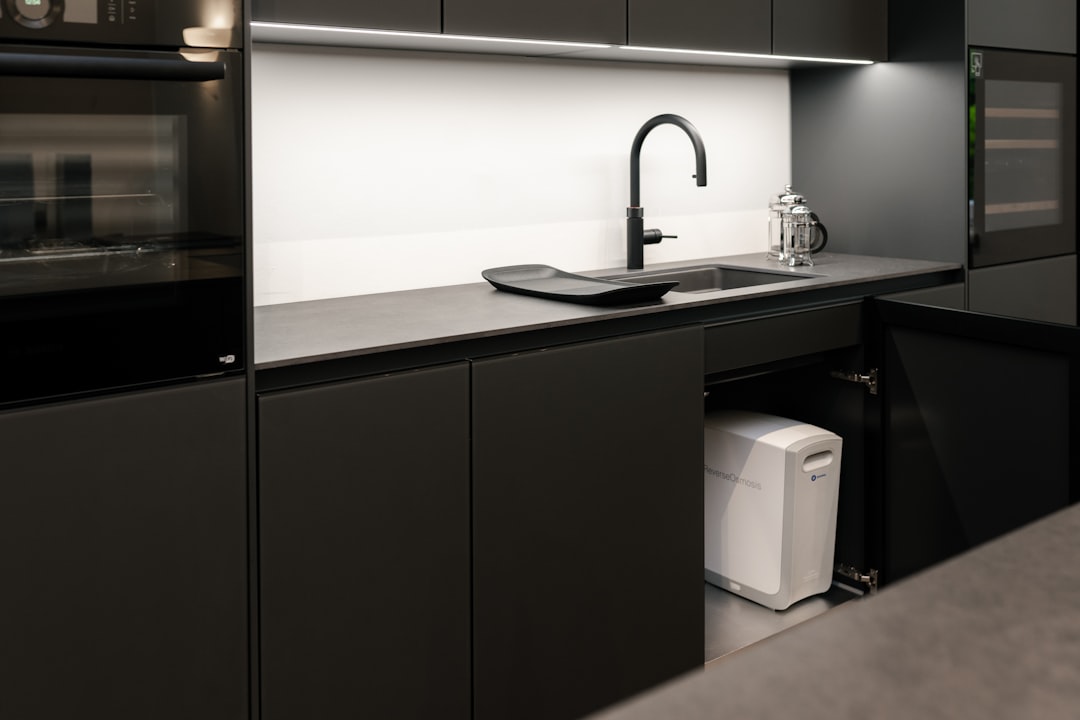Clean drinking water is a fundamental necessity for human survival and well-being. It is essential not only for hydration but also for maintaining overall health. The human body is composed of approximately 60% water, and every cell, tissue, and organ relies on it to function properly.
Access to clean water is crucial for various bodily processes, including digestion, circulation, and temperature regulation. Without adequate hydration from uncontaminated sources, individuals may experience a range of health issues, from mild dehydration to severe illnesses. Moreover, the significance of clean drinking water extends beyond individual health.
Clean water is vital for sanitation and hygiene, reducing the risk of waterborne diseases that can devastate populations. In many parts of the world, the lack of access to clean drinking water remains a pressing issue, highlighting the need for awareness and action to ensure that everyone can enjoy this basic human right.
Key Takeaways
- Clean drinking water is essential for health and well-being.
- Tap water can contain contaminants like chlorine, lead, and bacteria.
- Using a water filter improves water quality and taste.
- Various water filters exist, including activated carbon, reverse osmosis, and UV filters.
- Proper installation and maintenance are key to effective water filtration.
Common Contaminants in Tap Water
Tap water, while often treated and regulated, can still contain a variety of contaminants that pose risks to health. One of the most common issues is the presence of heavy metals such as lead and mercury. These metals can leach into drinking water from aging pipes or industrial runoff, leading to serious health concerns, particularly for vulnerable populations like children and pregnant women.
Long-term exposure to heavy metals can result in developmental issues, neurological damage, and other chronic health conditions. In addition to heavy metals, tap water may also harbor microorganisms such as bacteria, viruses, and parasites. These pathogens can enter the water supply through sewage leaks or inadequate treatment processes.
Contaminated water can lead to gastrointestinal illnesses and other infections that can be particularly dangerous for those with weakened immune systems. Furthermore, chemical contaminants like pesticides, herbicides, and pharmaceuticals can find their way into drinking water sources, raising concerns about their long-term effects on human health.
The Benefits of Using a Water Filter

Utilizing a water filter offers numerous advantages that can significantly enhance the quality of drinking water. One of the primary benefits is the removal of harmful contaminants that may be present in tap water. Water filters are designed to target specific pollutants, ensuring that individuals consume cleaner and safer water.
This not only improves taste and odor but also reduces the risk of health issues associated with contaminated water. Another significant benefit of using a water filter is the convenience it provides. Many households rely on bottled water as a perceived safer alternative; however, this can be costly and environmentally damaging due to plastic waste.
A water filter allows families to enjoy fresh drinking water directly from their tap without the need for single-use plastic bottles. This not only saves money in the long run but also contributes to a more sustainable lifestyle by reducing plastic consumption.
Different Types of Water Filters
| Type of Water Filter | Filtration Method | Common Contaminants Removed | Typical Lifespan | Flow Rate | Cost Range | Maintenance Frequency |
|---|---|---|---|---|---|---|
| Activated Carbon Filter | Adsorption | Chlorine, Sediment, VOCs, Bad Taste & Odor | 3-6 months | Medium | Low to Medium | Every 3-6 months |
| Reverse Osmosis (RO) Filter | Membrane Filtration | Lead, Arsenic, Fluoride, Nitrates, Microorganisms | 2-3 years | Low | Medium to High | Filter replacement every 6-12 months; membrane every 2-3 years |
| Ultraviolet (UV) Filter | UV Light Disinfection | Bacteria, Viruses, Protozoa | 1 year (UV lamp) | High | Medium | UV lamp replacement annually |
| Ceramic Filter | Physical Filtration | Bacteria, Sediment, Protozoa | 6-12 months | Low to Medium | Low | Cleaning every 2-4 weeks; replacement every 6-12 months |
| Ion Exchange Filter | Cation/Anion Exchange | Hardness Minerals (Calcium, Magnesium), Heavy Metals | 6 months to 1 year | Medium | Medium | Resin regeneration or replacement as needed |
| Distillation | Boiling and Condensation | Most Contaminants including Bacteria, Heavy Metals, Minerals | Varies by unit | Low | Medium to High | Regular cleaning of boiling chamber |
There are several types of water filters available on the market, each designed to address specific needs and preferences. Activated carbon filters are among the most common types; they work by adsorbing impurities and chemicals from water, effectively improving taste and odor. These filters are often found in pitcher filters and faucet-mounted systems, making them accessible for everyday use.
Reverse osmosis systems represent another popular option for those seeking high-quality filtration. This method uses a semi-permeable membrane to remove a wide range of contaminants, including heavy metals, salts, and microorganisms. While reverse osmosis systems tend to be more expensive and require more maintenance than activated carbon filters, they provide thorough purification for those who prioritize water quality above all else.
Additionally, ultraviolet (UV) filters are gaining traction for their ability to eliminate bacteria and viruses without the use of chemicals, making them an excellent choice for households concerned about microbial contamination.
Choosing the Right Water Filter for Your Home
Selecting the appropriate water filter for a home involves considering various factors that align with individual needs and circumstances. First and foremost, it is essential to assess the specific contaminants present in the local water supply. Homeowners can obtain a water quality report from their municipal provider or conduct independent testing to identify potential issues.
Understanding what contaminants need to be addressed will guide the selection process. Another critical consideration is the filter’s capacity and maintenance requirements. Some filters require frequent cartridge replacements or regular cleaning, while others may have longer lifespans with minimal upkeep.
Homeowners should evaluate their lifestyle and usage patterns to determine which type of filter will best suit their needs. Additionally, budget constraints play a significant role in decision-making; while some high-end filtration systems offer advanced features, there are also affordable options that provide adequate purification without breaking the bank.
How to Install and Maintain a Water Filter

Installing a water filter can vary in complexity depending on the type chosen. For simple pitcher filters or faucet-mounted systems, installation is typically straightforward and requires minimal tools or expertise. Users can follow manufacturer instructions to ensure proper setup and functionality.
However, more complex systems like under-sink reverse osmosis units may require professional installation to ensure optimal performance and avoid potential plumbing issues. Maintenance is equally important in ensuring that a water filter continues to function effectively over time. Regularly replacing filter cartridges according to manufacturer guidelines is crucial for maintaining filtration efficiency.
Neglecting this aspect can lead to reduced performance and even recontamination of filtered water. Additionally, users should periodically check for leaks or signs of wear in their filtration systems to address any issues promptly.
The Impact of Clean Water on Your Health
The relationship between clean drinking water and health cannot be overstated. Access to safe drinking water significantly reduces the risk of various diseases and health complications associated with contaminated sources. For instance, clean water helps prevent gastrointestinal infections caused by pathogens commonly found in untreated or poorly treated water supplies.
This is particularly important in areas where sanitation practices may be lacking. Furthermore, clean drinking water supports overall physical health by promoting proper hydration. Adequate hydration is essential for maintaining energy levels, cognitive function, and physical performance.
It also plays a vital role in regulating body temperature and supporting metabolic processes. By ensuring access to clean drinking water through filtration systems or other means, individuals can enhance their well-being and reduce the likelihood of health-related issues stemming from poor water quality.
Environmental Benefits of Using a Water Filter
Using a water filter not only benefits individual health but also has positive implications for the environment. One of the most significant environmental advantages is the reduction in plastic waste associated with bottled water consumption. Millions of plastic bottles end up in landfills each year, contributing to pollution and harming wildlife.
By opting for a home filtration system, individuals can significantly decrease their reliance on single-use plastics. Additionally, many modern water filters are designed with sustainability in mind. Some manufacturers prioritize eco-friendly materials in their products or offer recycling programs for used cartridges.
This commitment to sustainability helps minimize environmental impact while providing consumers with cleaner drinking water options. By choosing filtered tap water over bottled alternatives, individuals contribute to a more sustainable future while enjoying the benefits of safe hydration.
Tips for Testing Your Tap Water
Testing tap water is an essential step in understanding its quality and identifying potential contaminants that may pose health risks. Homeowners can begin by obtaining a comprehensive water testing kit from reputable suppliers or local health departments. These kits typically include instructions on how to collect samples properly and send them for analysis.
When testing tap water, it is crucial to check for common contaminants such as lead, nitrates, bacteria, and chlorine levels. Some testing kits provide immediate results for certain parameters, while others may require laboratory analysis for more detailed information.
Government Regulations and Standards for Drinking Water
Government regulations play a vital role in ensuring safe drinking water for communities across the globe. In many countries, agencies such as the Environmental Protection Agency (EPA) in the United States establish standards for drinking water quality based on scientific research and public health considerations. These regulations set limits on various contaminants that may be present in public water supplies.
While these regulations provide a framework for maintaining safe drinking water standards, it is important to note that not all contaminants are regulated equally. Some harmful substances may not have established limits or may be present at levels deemed acceptable despite potential health risks. Therefore, individuals should remain proactive about their drinking water quality by conducting independent testing and considering additional filtration methods if necessary.
Alternatives to Tap Water Filtration
While tap water filtration is an effective way to ensure clean drinking water at home, there are alternative methods worth considering as well. Boiling water is one traditional method that effectively kills bacteria and viruses; however, it does not remove chemical contaminants or heavy metals present in the water supply. Another alternative is using bottled spring or mineral water as a temporary solution; however, this approach raises concerns about environmental impact due to plastic waste and may not always guarantee superior quality compared to filtered tap water.
Additionally, some individuals may explore rainwater harvesting systems as an eco-friendly option for sourcing clean water; however, this method requires careful management and adherence to local regulations regarding collection and use. In conclusion, clean drinking water is essential for health and well-being, making it imperative for individuals to understand their options regarding filtration and purification methods. By being informed about common contaminants, benefits of filtration systems, installation procedures, maintenance requirements, environmental impacts, testing methods, government regulations, and alternative solutions, individuals can take proactive steps toward ensuring access to safe drinking water in their homes.
Filtering your tap water is essential for ensuring that you and your family are consuming clean and safe drinking water. Many contaminants can be present in tap water, including chlorine, lead, and other harmful substances that may affect your health. For more insights on the importance of water filtration and its benefits, you can read this informative article on the topic. Check it out here: Why You Should Filter Your Tap Water.
WATCH THIS! The $400 Billion Water Lie: Why Bottled Water Is a Scam
FAQs
Why is it important to filter tap water?
Filtering tap water helps remove contaminants such as chlorine, lead, bacteria, and other impurities, improving the taste, odor, and safety of the water you consume.
What contaminants can a tap water filter remove?
Tap water filters can remove a variety of contaminants including chlorine, sediment, heavy metals like lead and mercury, pesticides, bacteria, and sometimes even viruses, depending on the filter type.
Does filtered tap water taste better than unfiltered tap water?
Yes, filtering tap water often improves its taste and odor by removing chlorine and other chemicals that can cause unpleasant flavors.
Is filtered tap water safer to drink than unfiltered tap water?
Filtered tap water can be safer to drink as it reduces exposure to harmful contaminants that may be present in unfiltered tap water, though the level of safety depends on the quality of the filter used.
How often should I change my tap water filter?
Filter replacement frequency varies by filter type and usage but generally ranges from every 2 to 6 months. Always follow the manufacturer’s recommendations for optimal performance.
Can filtering tap water save money compared to buying bottled water?
Yes, filtering tap water is usually more cost-effective than purchasing bottled water over time, and it also reduces plastic waste.
Are all tap water filters the same?
No, tap water filters vary in technology and effectiveness. Common types include activated carbon filters, reverse osmosis systems, and UV filters, each targeting different contaminants.
Does filtering tap water remove beneficial minerals?
Some filtration methods, like reverse osmosis, may remove beneficial minerals such as calcium and magnesium, while others, like activated carbon filters, typically retain them.
Is filtered tap water environmentally friendly?
Yes, using a tap water filter reduces reliance on bottled water, which decreases plastic waste and the environmental impact associated with plastic production and disposal.
Can I filter tap water if I have a well or private water source?
Yes, filtering tap water from wells or private sources is often recommended to remove potential contaminants like bacteria, sediment, and chemicals that may not be regulated.
